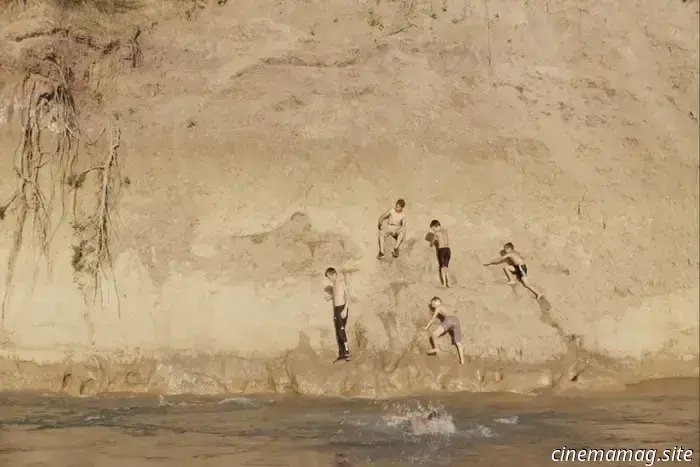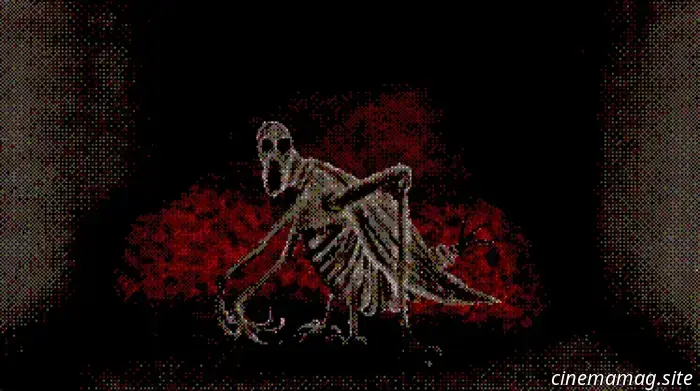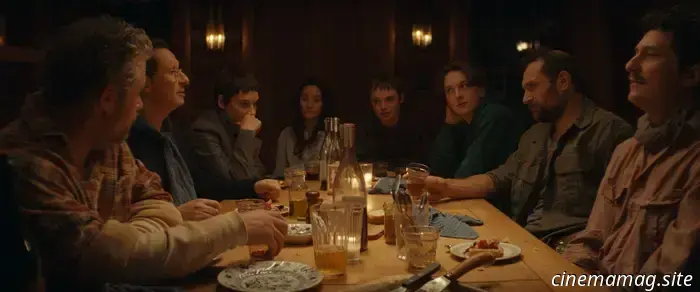
Cannes Review: Imago Discovers a Filmmaker of Chechen Origin in Pursuit of a Sense of Belonging
Midway through *Imago*, a captivating documentary by Déni Oumar Pitsaev, the director has a conversation with his mother about the land she purchased for him in Pankisi, a valley in Georgia near the Chechen border. When he inquires about her reason for the purchase, she replies: “…so you don’t get lost, having no homeland… everyone needs a homeland.” This notion of “home” permeates every scene of the film.
In 1996, during the turmoil of the First Chechen War, young Déni fled with his mother to Russia. To this day, they are unable to return to Chechnya, which falls under the Russian Federation. *Imago* chronicles Pitsaev's journey in Pankisi: reuniting with his family, examining his property, and pondering the construction of a house there. The film presents moments of laughter, insights, and the persistent teasing from family regarding when Pitsaev will settle down with a wife and children. His cousin Daoud Margoshvili––a former Olympian, small-business owner, and devoted family man––contrasts sharply with Pitsaev. According to the locals in the valley, Daoud embodies the ideal image of a Chechen man. He is undeniably charming.
The visual style of *Imago* often conveys a narrative feature, with its staging and lighting suggesting a more deliberate approach than mere candid shots. Sylvain Verdet and Joachim Philippe are credited as Directors of Photography, and their soft touch gives the images a quality that nearly obscures their authenticity. It’s an unusual critique to say a film appears too polished, yet fortunately, the interactions throughout dispel any air of pretentiousness. One touching scene features Pitsaev’s mother gently stroking his hair while expressing what name she would have preferred for him. It was not her decision; she was not even consulted. Despite the gentle nagging regarding family matters, they share a deep connection. She has been a single mother for many years, having separated from his father long ago and endured the war alone.
When Pitsaev’s father appears in the latter part of *Imago* to discuss the potential house and reconnect, the atmosphere becomes somewhat charged. “My heart doesn’t allow me to feel close to you,” the director admits at one moment. A standout moment in the film occurs when the cinematographers capture a stunning, verdant forest backdrop during a particularly emotional segment of the climactic conversation between father and son. Several insightful observations arise throughout the film. In tense moments, certain individuals engage in trivial activities, as if fiddling with a tree branch can distract them from their harsh reality. It’s a childlike but deeply authentic response.
The concept of home in *Imago* is both distinctly personal and remarkably universal. Many can identify with that experience of home—how it evolves over time yet retains core essence. It encompasses where you were raised, where your family resides, including parents and relatives. Additionally, it can represent where you choose to build a family (with a partner, children, or however you define it). Each location and each group of people carries a mix of cherished and painful memories. For Déni Oumar Pitsaev, returning to that place is not an option. However, the people remain, as do the memories. What do we owe those who came before us? *Imago* serves as a compelling exploration of a lost boy grappling with his desire to be understood and recognized.
*Imago* had its premiere at the 2025 Cannes Film Festival.
Other articles
 First-look preview of the graphic novel The Nightmare Before Christmas: Long Live the Pumpkin Queen has been released.
Dynamite Entertainment is set to release its brand-new graphic novel adaptation of Shea Ernshaw’s New York Times bestselling Tim Burton’s The Nightmare Before Christmas: Long Live the Pumpkin Queen next month. Below, you can take a sneak peek at some early unlettered artwork... Jack and Sally Skellington appear to be the ideal couple – but all [...]
First-look preview of the graphic novel The Nightmare Before Christmas: Long Live the Pumpkin Queen has been released.
Dynamite Entertainment is set to release its brand-new graphic novel adaptation of Shea Ernshaw’s New York Times bestselling Tim Burton’s The Nightmare Before Christmas: Long Live the Pumpkin Queen next month. Below, you can take a sneak peek at some early unlettered artwork... Jack and Sally Skellington appear to be the ideal couple – but all [...]
 The unsettling dungeon crawler, Horripilant, has released a demo and a teaser trailer.
Pas Game Studio has launched a demo for their forthcoming eerie Vermis-inspired incremental dungeon crawler, Horripilant. This demo offers players a chance to experience the game's main incremental mechanics and enables continuous gameplay until the player attains level 10. A new trailer is available below... Those who buy the game after [...]
The unsettling dungeon crawler, Horripilant, has released a demo and a teaser trailer.
Pas Game Studio has launched a demo for their forthcoming eerie Vermis-inspired incremental dungeon crawler, Horripilant. This demo offers players a chance to experience the game's main incremental mechanics and enables continuous gameplay until the player attains level 10. A new trailer is available below... Those who buy the game after [...]
 Ariana Grande set to encounter the parents in the forthcoming comedy sequel.
The release date for the fourth installment of the Meet The Parents franchise has been announced, along with a new cast member. Ariana Grande from Wicked will be joining the upcoming sequel, which is set to hit theaters on November 25th, 2026. Grande will be alongside original stars Ben Stiller, Robert De Niro, Teri Polo, and Blythe Danner, along with series co-writer John [...].
Ariana Grande set to encounter the parents in the forthcoming comedy sequel.
The release date for the fourth installment of the Meet The Parents franchise has been announced, along with a new cast member. Ariana Grande from Wicked will be joining the upcoming sequel, which is set to hit theaters on November 25th, 2026. Grande will be alongside original stars Ben Stiller, Robert De Niro, Teri Polo, and Blythe Danner, along with series co-writer John [...].
 New to Streaming: Who by Fire, A Desert, Bono: Stories of Surrender, On Swift Horses, and Additional Titles
Every week, we spotlight the significant titles that have recently been added to streaming services in the United States. Take a look at this week's picks below and find previous compilations here. Bono: Stories of Surrender (Andrew Dominik) Following the controversial release of Blonde three years ago, there hasn't been any progress on a new narrative film from Andrew Dominik, but he's returned.
New to Streaming: Who by Fire, A Desert, Bono: Stories of Surrender, On Swift Horses, and Additional Titles
Every week, we spotlight the significant titles that have recently been added to streaming services in the United States. Take a look at this week's picks below and find previous compilations here. Bono: Stories of Surrender (Andrew Dominik) Following the controversial release of Blonde three years ago, there hasn't been any progress on a new narrative film from Andrew Dominik, but he's returned.
 10 Excellent Overlooked Films Worth Discovering
Tom Jolliffe presents crucial films that were either overlooked upon their release or have been forgotten over the years. Occasionally, a film fails to resonate with a broad audience for various reasons. It might have been released during an unsuitable time or may need time to cultivate a cult following. Some films, upon reflection, ultimately […]
10 Excellent Overlooked Films Worth Discovering
Tom Jolliffe presents crucial films that were either overlooked upon their release or have been forgotten over the years. Occasionally, a film fails to resonate with a broad audience for various reasons. It might have been released during an unsuitable time or may need time to cultivate a cult following. Some films, upon reflection, ultimately […]
Cannes Review: Imago Discovers a Filmmaker of Chechen Origin in Pursuit of a Sense of Belonging
Midway through Imago, a captivating documentary by Déni Oumar Pitsaev, the director engages in a discussion with his mother regarding the land she acquired for him in Pankisi (a valley in Georgia close to the Chechnya border). When he inquires about her reasons for the purchase, she replies: "...to ensure you don't feel lost, without a homeland... everyone
